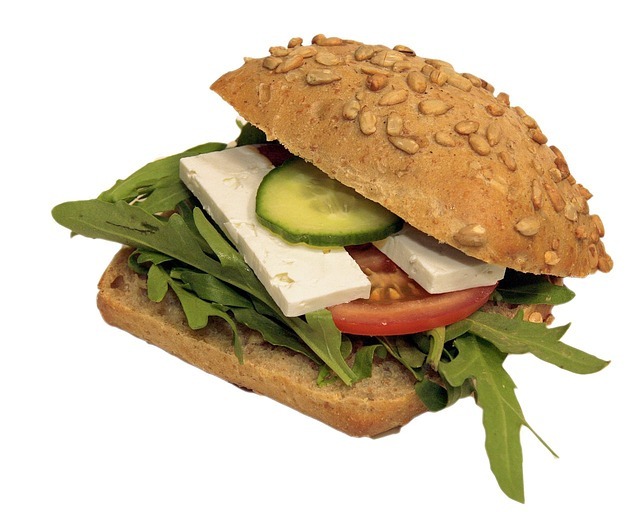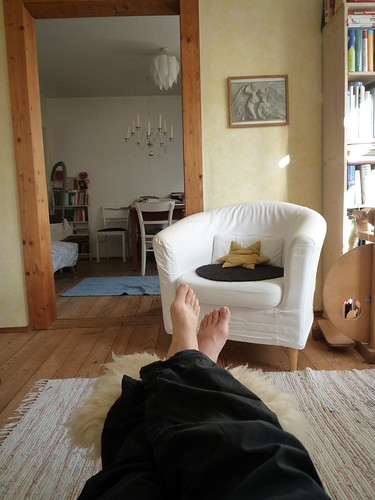Self-control does not have a glamourous image. When we think of self-control, we tend to think of terribly grim types like Lord Chesterfield, who wrote in his instructions to his son that “In my mind, there is nothing so illiberal, and so ill-bred, as audible laughter… I am sure that since I have had the full use of my reason nobody has ever heard me laugh.”
 Mind you, this was his illegitimate son he was writing to, so he’s probably not the ideal poster-boy for self-control. Expunge him from your mind. (What a wonderful word that is: expunge. Expunge.) The point is, though (I knew I’d find it in here somewhere), that self-control has a reputation for being one of the more tedious and unpleasant virtues. This reputation, I must say, is wholly undeserved.
Mind you, this was his illegitimate son he was writing to, so he’s probably not the ideal poster-boy for self-control. Expunge him from your mind. (What a wonderful word that is: expunge. Expunge.) The point is, though (I knew I’d find it in here somewhere), that self-control has a reputation for being one of the more tedious and unpleasant virtues. This reputation, I must say, is wholly undeserved.
To be fair, self-control is not an easy virtue to acquire, but what can you do without it? Well, lots of things, most of which will come back to bite you, in the near or distant future. Without self-control, the athlete sleeps in instead of training and thus never wins. Without self-control, the kiddie eats chocolate cake until he pukes, and fails to enjoy his party. Without self-control, the office-worker socks his annoying boss in the eye and gets fired. Without self-control, the student watches TV instead of studying and thus fails to make the grade. Without self-control, the politician sends inappropriate pictures of himself (under a cringe-worthy pseudonym) to an affronted woman, thus sabotaging his reputation and career.
 Self-control: don’t leave home without it. In fact, don’t do anything without it.
Self-control: don’t leave home without it. In fact, don’t do anything without it.
Consider how the day might go without self-control. You’re late for work because you couldn’t make yourself get out of bed. You get in trouble for playing Frozen Bubble/Spider Solitaire/Minesweeper/[insert addictive game here] when you should have been working, because you couldn’t resist the urge. You go with the unhealthy option for lunch. You hit the mall for some retail therapy, just to make yourself feel better after your horrible day, and – this is so embarrassing! – your card is declined, because you have made one too many impulse purchases already. You go home to sulk, realize you haven’t sorted out anything for dinner, and end up eating dry toast because you can’t be bothered cooking anything ‘proper’ and you haven’t made the time-sacrifice necessary to have anything in the cupboard suitable for putting on toast. Depressing? I think so.
Ah, but what can you do with self-control? You can reach your goals. You can politely refuse to take on inessentials (because saying “no” to yourself is excellent training for saying “no” to others). You can have a glass of wine at the end of a long day without drinking yourself under the table; or a piece of dark chocolate without scarfing the whole block. Because self-control doesn’t always mean saying “no” to yourself. Sometimes it means saying “not now”, or “that’s enough.”
 Self-control is freedom. Self-control is what gets good habits going. Self-control is what gets you to the Olympics (whether it’s as an athlete, or someone who saved up for tickets). Self-control is what gets you a healthy life – not only physically healthy and financially healthy, but time-healthy, because you never watch TV just because it’s there, and you never get caught doing stuff that doesn’t matter because you somehow couldn’t say no.
Self-control is freedom. Self-control is what gets good habits going. Self-control is what gets you to the Olympics (whether it’s as an athlete, or someone who saved up for tickets). Self-control is what gets you a healthy life – not only physically healthy and financially healthy, but time-healthy, because you never watch TV just because it’s there, and you never get caught doing stuff that doesn’t matter because you somehow couldn’t say no.
Enough! I hear you saying. Stop blethering on about the attractions of this wonder-virtue and tell me how I can get my hands on some. (Sudden urge to tell people to send in an SASE with only $2.99 for a pamphlet on how to gain self-control in three easy steps. Urge resisted. See? Self-control: good for everybody.)
Three steps, eh? Let’s see. Personally, I’d advise working up to it. Build up a bit of virtuous muscle before tackling the big stuff. Trying to go straight from a life of unfiltered impulse to a life of perfectly balanced control is a bit much of a jump: you’ll probably pull something. Break it down and take it step by step.
 Step #1: find an area of your life which could use a bit more discipline. This doesn’t have to be something huge; in fact it would be better if it isn’t. Washing the dishes promptly, say; or putting the rubbish out.
Step #1: find an area of your life which could use a bit more discipline. This doesn’t have to be something huge; in fact it would be better if it isn’t. Washing the dishes promptly, say; or putting the rubbish out.
Step #2: coach yourself. Right! you say to yourself, the hour has come when we are going to get those dishes washed. Now this isn’t going to hurt; it’s not a big deal; we’re just going to mosey on over there and run some water into the sink. Done in no time, and then we’ll put our feet up with a cuppa. Keep telling yourself why you’re doing this. It’s going to be a habit! It will never be a huge deal again! The dishes will get done without us even having to bother about it!
Step #3: Rinse and repeat. Actually, just repeat. If you need to rinse your dishes after washing them you are probably using too much detergent.
Take another example: not bolting through that entire block of chocolate. Again the steps: #1, you decide what needs to be done (or in this case, not done). No more than two squares a day, you tell yourself. #2: you coach yourself through it. You decide you’re going to save the squares as an end-of-the-day unwinding treat. Every time you find your mind – or your hand – creeping toward that chocolate, you tell yourself you can have some tonight. And then – this is very important – you eat the chocolate. No seeing how far you can push this self-control thing just yet. Put the chocolate away (step away from the chocolate), and #3: have some more tomorrow.
 There’s nothing new here; and I’m sure you all know all this. The problem, I find, is that we have so long relied on some outside force to “make us” – the boss that will fire us if we’re always late; the guest whose presence will embarrass us if we don’t clean the house; the parent who won’t let us play til we’ve done our homework – that we’ve never learned to exert control over ourselves. There’s always been someone else to do it for us.
There’s nothing new here; and I’m sure you all know all this. The problem, I find, is that we have so long relied on some outside force to “make us” – the boss that will fire us if we’re always late; the guest whose presence will embarrass us if we don’t clean the house; the parent who won’t let us play til we’ve done our homework – that we’ve never learned to exert control over ourselves. There’s always been someone else to do it for us.
Basically, the bits of us that aren’t self-controlled are the bits that haven’t grown up yet. So deal with them like you’d deal with a kid (and no I don’t mean bribery mixed with threats). Set yourself some boundaries and keep to them. When you’re struggling, remind yourself how much you don’t want to be trapped in a life that is out of control. And as always, if you have any helpful tips, be sure to leave them in the comments.








